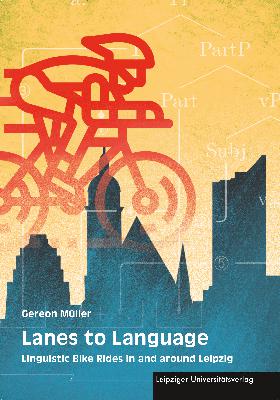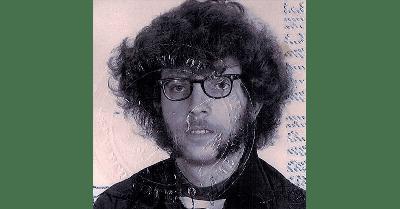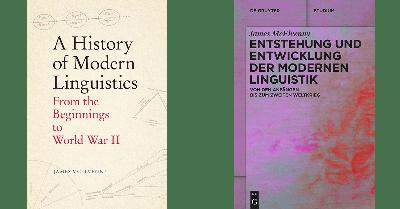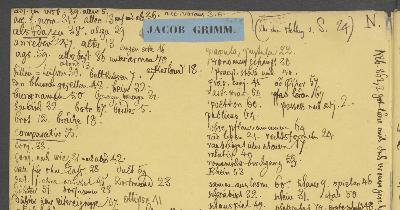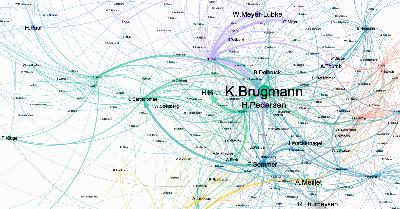Podcast episode 42: Randy Harris on the Linguistics Wars
Description
In this interview, we talk to Randy Harris about the controversies surrounding the generative semantics movement in American linguistics of the 1960s and 70s.
<figure class="wp-block-audio"></figure>
Download | Spotify | Apple Podcasts | YouTube
References for Episode 42
Chomsky, N. (2015/1965). Aspects of the theory of syntax (50th Anniversary edition.). The MIT Press.
Harris, R. A. (2021/1993). The linguistics wars: Noam Chomsky, George Lakoff, and the battle over Deep Structure (2nd ed.). Oxford.
Huck, G. J., & Goldsmith, J. A. (1995). Ideology and linguistic theory: Noam Chomsky and the deep structure debates. Routledge.
Katz, J. J., & Postal, P. M. (1964). An integrated theory of linguistic descriptions. M.I.T. Press.
McCawley, J. D. (1980). Linguistic theory in America: The first quarter-century of transformational generative grammar, by Frederick J. Newmeyer (Book Review). Linguistics, 18(9), 911-930.
Newmeyer, F. J. (1986/1980). Linguistic theory in America: The first quarter-century of transformational generative grammar (2nd ed.). Academic Press.
Postal, P. M. (1972). The best theory. In S. Peters (Ed.), Goals of linguistic theory. Prentice-Hall.
Postal, P. M. (1988). Topic…Comment: Advances in linguistic rhetoric. Natural Language and Linguistic Theory, 6(1), 129–137.
Transcript by Luca Dinu
JMc: Hi, I’m James McElvenny, and you’re listening to the History and Philosophy of the Language Sciences podcast, [00:14 ] online at hiphilangsci.net. [00:17 ] There you can find links and references to all the literature we discuss. [00:21 ] Today we’re talking to Randy Harris, [00:24 ] who is Professor of both English Language and Literature and Computer Science at the University of Waterloo in Canada. [00:32 ] Among other things, Randy is the author of The Linguistics Wars, [00:37 ] the classic account of the generative semantics controversy that engulfed generative linguistics in the 1960s and ’70s. [00:45 ] A second edition of Randy’s book came out in 2021, and I’ve been wanting to talk to him about it since then, [00:52 ] but as a history podcast, we are by definition behind the times, [00:57 ] so it’s only appropriate that we’re only getting to his book now. [01:01 ] So, Randy, can you tell us, what were the linguistics wars? [01:05 ] Who were the chief combatants, and what were they fighting about? [01:09 ]
RH: Well, first, thanks for inviting me on. I’m a big fan of the podcast. [01:13 ] It’s a really important and interesting podcast about the history of linguistics, [01:18 ] and I’m also a fan of your work, your Ogden book, Language and Meaning. [01:22 ] It is really, really valuable, and I’m looking forward to the new one that you’ve got coming out on the history of modern linguistics. [01:30 ] So, maybe the best way to start is just to talk about how I entered the project in the first place. [01:35 ] So, I was a PhD student, and I just discovered a field called rhetoric. [01:41 ] My other degrees were in literature and linguistics before I got there, [01:46 ] and I was casting around. I’d originally gone to do communication theory, [01:50 ] but it turned out that the department wasn’t as strong in that as I thought, [01:54 ] and they had a really good rhetorician, and he was doing something called rhetoric of science, [01:59 ] which is basically the study of scientific argumentation. [02:03 ] I started reading in that field quite a bit and studying under him, Michael Halloran, [02:08 ] and then when it came time to write a dissertation, I started casting around for scientific episodes. [02:14 ] One of the themes of rhetoric of science at that point was mostly looking at controversies, [02:19 ] looking at how scientific disputes get resolved or fail to get resolved through warring camps. [02:25 ] I read Fritz Newmeyer’s book, Linguistic Theory in America, [02:29 ] and one of the key chapters is about this group called the generative semanticists and Chomsky coming at odds with each other, [02:39 ] but I’d also read a review of the book by James McCawley, [02:42 ] who was one of the people associated with the linguistics wars on the generative semanticists’ side, [02:47 ] and it was fairly polite, but said that basically Newmeyer’s book didn’t tell the whole story. [02:53 ] So I thought, “Well, I’d look into this a bit,” and I wrote basically all of the major players. [02:58 ] So I wrote Chomsky, of course, and the major players on the generative semanticists’ side were Paul Postal, [03:06 ] who was a colleague of Chomsky’s just before that, George Lakoff, John Robert Ross (Haj Ross), [03:13 ] and Ray Jackendoff, who was aligned with Chomsky in this dispute, [03:17 ] but also a lot of people around the dispute [03:21 ] — Jerrold Katz, Jerry Fodor, Thomas Bever, Arnold Zwicky, Jay Keyser, Robert Lees, Morris Halle, Jerry Sadock, Howard Lasnik, [03:30 ] just everybody who had seemed to have something to say about that dispute and about the theories around them — [03:37 ] and I got just an overwhelming response. [03:40 ] Everybody wanted to talk about it. [03:43 ] I can’t remember the exact order in which it happened, whether it was a response to a letter that invited me to call or a phone call as a response to my initial letter to Lakoff, [03:52 ] but Lakoff and I were on the phone for like an hour and a half one night, [03:56 ] him just going through what everything was all about. [03:59 ] So this was 20 years after the dispute, more or less, and everybody was still wanting to talk about it. [04:06 ] There were still hurt feelings and incensed attitudes and so forth, [04:10 ] and I was coming at it from a completely different discipline and a PhD student, [04:16 ] not anybody really in the field, and all of them wanted to talk to me. [04:20 ] So it grew into a kind of oral history project. [04:22 ] I travelled around and interviewed them all. [04:25 ] I ended up with like 500-some-odd pages of transcripts of interviews. [04:29 ] I met Lakoff in a bar in Cambridge. I talked to Chomsky for hours in his office. [04:35 ] I went to the University of Chicago, and one of the sociological centre points of the generative semanticist side was the University of Chicago, [04:42 ] especially all of the conferences and publications out of the Chicago Linguistic Society, [04:47 ] and talked to McCawley and Sadock and so forth there. [04:50 ] So everybody wanted to talk about it. [04:52 ] It was a really interesting story. [04:54 ] What was it? I’ll give you the scientific development story first. [04:58 ] So Noam Chomsky and his collaborators, most prominently Paul Postal and Gerald Katz, [05:06 ] developed a theory coalesced in the book Aspects of the Theory of Syntax in 1965 [05:12 ] that had this central notion of deep structure. [05:16 ] The model itself was structured as a process model where you generate sentences, [05:22 ] and it was a sentence grammar, not an utterance grammar. [05:25 ] All of the proponents denied that it was a process. [05:28 ] They just talked about it as an abstract model of linguistic knowledge in some way, [05:32 ] but it was shaped as a process model in which you had a set of syntactic rules, [05:37 ] phrase structure rules, that generated a syntactic structure [05:41 ] and a bag of words, a dictionary, a lexicon, that then populated the structure. [05:48 ] And then what you got was the deep structure, which wasn’t what we speak with [05:55 ] or write with, but an underlying representation that somehow crystallized [06:00 ] essential aspects of how we speak, one of them being semantic. [06:05 ] So a paradigm case would be the passive transformation. [06:09 ] The phrase structure rules and lexicon give you something like [06:13 ] “John walked the dog,” and that mi



